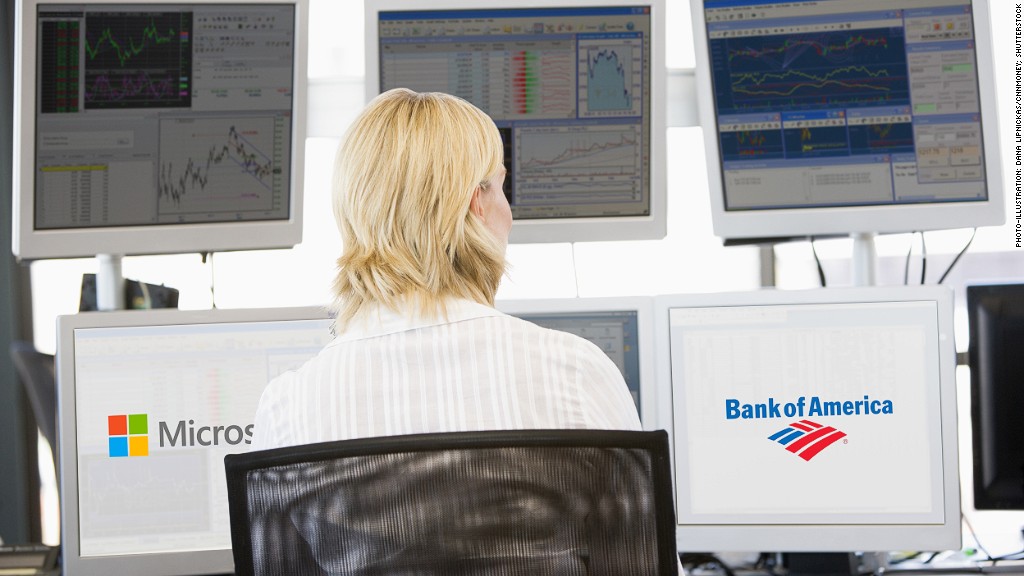
Bank of America's stock may have a checkered past, but it's been a darling of high speed traders.
The bank's high valuation (around $150 billion) and low stock price (around $14) is the perfect combination for firms that trade in milliseconds.
That's because of the fees, or so-called rebates, trading firms get every time they buy or sell a stock on the public market. Those rebates are the same regardless of the stock price so they can add up quickly.
For high speed trading firms, the low price allows them to jump in and out of "cheap" stocks, and rack up big bucks without carrying a lot of risk.
Firms also pay fees to list orders to buy or sell stocks, but those are much smaller.
Still, it takes more than a low stock price to entice high speed traders. They also want stocks that trade a lot, which is why they tend to gravitate toward large cap stocks.
"When there's a tremendous amount of liquidity, you have a safety cushion to trade in and out of a stock," said Dave Lauer, a former trader and analyst at high-speed trading firm Allston Trading.
Related: The computers that run the stock market
There are a handful of stocks that fit that bill.
Satellite radio station Sirius XM (SIRI) is one. It has a market cap of $23.4 billion but its stock is less than $4.
Telecom company Sprint (S), tech giants Microsoft (MSFT) and Cisco (CSCO), drugmaker Pfizer (PFE), and conglomerate General Electric (GE) are among the other favorites, according to several high speed traders, market makers, and research from Rosenblatt Securities.
"High speed traders want zero risk trades," said Dennis Dick, who runs research firm Premarket Info.
That means some companies that have high valuations might not make the cut.
While high speed traders like Microsoft, which has a market cap above $300 billion and trades around $36 a share, they balk at the price tags on Apple (AAPL) and Google (GOOG). Both have similarly high market valuations but they trade in the triple digits.
"If I make the same amount in rebates either way, I'd rather pony up $3 [to buy a company's stock] than a few hundred dollars," said Justin Schack, an analyst at Rosenblatt Securities. "It ties up less capital, and if something goes wrong, there's less risk of losing money."
Related: Citadel: The stock market is safer than ever
High-speed trading accounts for roughly half of all stock trading volume in the U.S., according to Rosenblatt Securities.
That causes huge disparities in the volume of lower priced stocks versus more expensive ones.
For example, Bank of America (BAC) has generated roughly 34 times the volume of rival Goldman Sachs (GS) this year. To put it even more plainly, about 196 million BofA shares are traded each day, compared with just 5.6 million shares of Goldman.
But the stocks that struggle the most in the new world of high speed trading are small- and mid-cap stocks.
Take Energizer (ENR). The battery maker has a market cap of $6.7 billion but only about 477,000 shares change hands each day. That makes it hard for investors to sell out or potential investors to jump in without dramatically affecting the share price.
Another well-known small-cap stock, DreamWorks Animation (DWA), had just 867,000 shares trade each day this year on average.
"Some people say that market quality is better because of high speed trading, because buy and sell spreads are so tight," said Lauer. "But nobody will make try to make that argument for small and mid-cap stocks."


